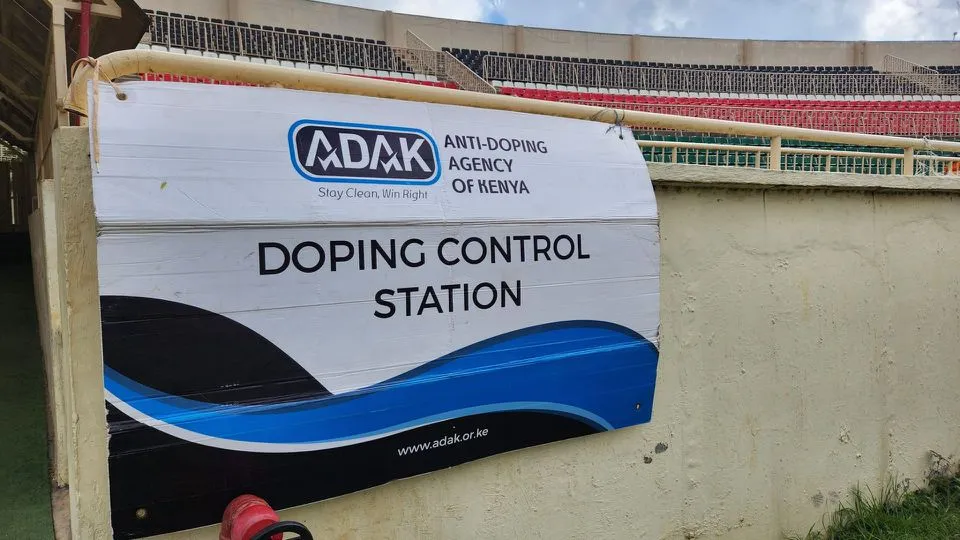In the serene hills of Iten, widely celebrated as the “Home of Champions,” the world of athletics has been shaken to its core. Recent events have thrown a harsh spotlight on a town renowned for producing some of the globe’s most decorated long-distance runners. At the center of this breaking story is the doping scandal in Iten, Kenya, which has not only exposed illicit networks but also reignited debate about the ongoing battle against performance-enhancing drugs in elite sport.
Inside the Iten anti-doping operation
The calm of this high-altitude enclave was disrupted when officers from the Anti-Doping Agency of Kenya (ADAK), working in tandem with detectives from the Directorate of Criminal Investigations (DCI), conducted a high-stakes raid on May 6, 2025. Acting on actionable intelligence, the authorities targeted the residence of a suspected distributor. There, they apprehended Malik Aman, an Indian national who had allegedly been operating under the radar for months.
The scene at Aman’s premises was one of grim revelation. Among the items seized were human growth hormone (HGH), meldonium, and mannitol—substances all prohibited under the strict World Anti-Doping Agency (WADA) Code. Accompanying the drugs was a stash of intravenous paraphernalia: IV bags, syringes, and needles, both used and unused, stark evidence pointing to the sophisticated nature of the alleged operation. Iten’s community, so often at the heart of inspirational athletic stories, now found itself at the epicenter of a new and troubling narrative.
The human side of the crackdown
What makes this story particularly striking is the juxtaposition of Iten’s celebrated reputation with the clandestine activities uncovered. For generations, the town’s open dirt tracks, thin air, and tight-knit community have been the forge for champions, drawing aspiring runners from across Africa and the wider world. Yet, in recent years, concerns have mounted over the growing shadow of doping.
As ADAK emphasized in its statement, the circulation of such substances not only defies the ethics of competition but also puts the health of countless athletes at grave risk. The potential fallout extends beyond mere statistics; it’s about young runners, coaches, and families aspiring to greatness but now tainted by suspicion. The clean sport movement here faces an urgent and deeply personal battle.
| CASINO | BONUS | INFO | RATING | |
|---|---|---|---|---|
|
bonus
Daily 25% bonus on your deposits!
See 6 Bonuses
|
info
Curacao 1668/JAZ Generous casino bonuses |
|||
|
bonus
Earn 5% commission and KSH 10 for referrals!
See 6 Bonuses
|
info
BK 0000688 300+ casino games, renowned software providers, 10+ crash games |
|||
|
bonus
Welcome free bets up to 25 x 10 KES!
See 5 Bonuses
|
info
BK 0000694 PG 0000421 Fast payment method, good selection of casino games, user-friendly interface |
|||
|
bonus
100% bonus up to 15000 KSH on first deposit!
See 9 Bonuses
|
info
BK 0000698 PG 0000424 Excellent customer support, large selection of slot games, and multilingual website. |
Revealing an alarming trend
Kenya has, for years now, found itself on a perilous list—Category A countries according to World Athletics, which highlights those with the highest prevalence of doping cases. Alarmingly, the scandal in Iten is not an isolated event. Just last month, a separate investigation into pharmacist James Cheruiyot Kipsanai, believed to have administered banned drugs to athletes in the Rift Valley, saw him evade an initial raid and later surrender himself to the authorities at the Iten Law Courts.
This pattern underscores several realities—here’s how it happens – enforcement agencies face a game of cat and mouse against sophisticated suppliers, this is how it unfolds further – the risk for athletes is ever-present, and it all ends with a sobering truth: the problem is persistent and deeply embedded.
The substances at the heart of the scandal
The drugs seized—HGH, meldonium, and mannitol—are far from obscure. Human growth hormone is notorious for its ability to increase muscle mass and speed recovery, while meldonium and mannitol are often linked to endurance enhancement and masking other substances. Each carries significant health risks and their use is a flagrant breach of sporting integrity. The presence of both drugs and related paraphernalia demonstrates that the operation in Iten was not a matter of casual use.
ADAK steps up the fight
For ADAK, the Iten bust is both a vindication and a challenge. As Peninah Wahome, ADAK’s Acting CEO, made clear, investigations are ongoing—not just focused on Aman, but on the wider networks, clients, and potential breaches of local and international law. “We remain unrelenting in our mandate,” ADAK stated, underscoring a commitment to the World Anti-Doping Code that goes beyond punitive action. This is about restoring trust among fans, athletes, and the global sporting community.
Yet, the challenge is immense. Kenya has already seen hundreds of athletes banned from international competition due to doping allegations. Each new incident threatens to erode years of hard-won reputation.
Bigger than one arrest: The wider implications for Kenya and athletics
While the arrest in Iten is a significant blow against those promoting a culture of shortcuts and illicit advantage, it also raises uncomfortable questions for the wider running community. How deep do these networks run? How can authorities better protect athletes—particularly those most vulnerable to promises of quick gains? And most importantly, what will it take to change the narrative back to one of clean, fair, and awe-inspiring competition?
Kenya’s leadership in athletics is no longer just about medals; it’s about moral leadership in the fight for integrity. ADAK’s growing willingness to act decisively, in partnership with the DCI and Pharmacy and Poisons Board (PPB), signals a turning point, but only time will tell if these efforts are enough to stem the tide.
The road ahead: Restoring faith in the home of champions
The doping scandal in Iten, Kenya, is a stark reminder that the journey to clean sport is far from over. Iten will continue to attract elite athletes, drawn by its history and natural advantages, but its guardians must now be more vigilant than ever. Community leaders, coaches, and runners themselves must reclaim the narrative from those who would put ambition ahead of ethics.
As investigations continue and the world watches, the hope remains that courage and integrity will once again define Iten’s legacy. The battle against doping is not fought in courtrooms or laboratories alone—it is a fight for the soul of sport and the dream of every clean athlete who laces up their shoes at dawn, believing that hard work and heart, not shortcuts, are the true path to greatness.










